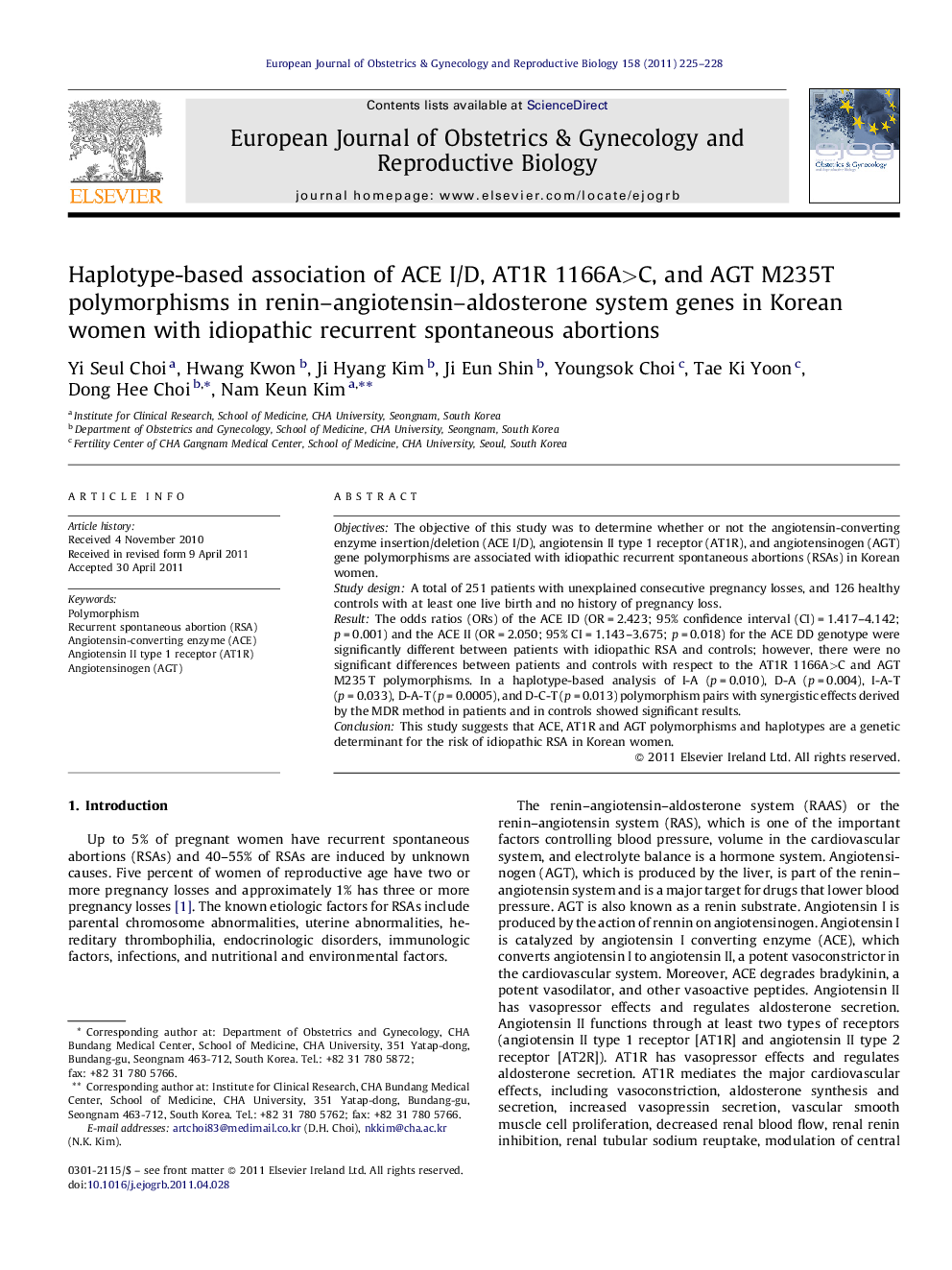| Article ID | Journal | Published Year | Pages | File Type |
|---|---|---|---|---|
| 3920377 | European Journal of Obstetrics & Gynecology and Reproductive Biology | 2011 | 4 Pages |
ObjectivesThe objective of this study was to determine whether or not the angiotensin-converting enzyme insertion/deletion (ACE I/D), angiotensin II type 1 receptor (AT1R), and angiotensinogen (AGT) gene polymorphisms are associated with idiopathic recurrent spontaneous abortions (RSAs) in Korean women.Study designA total of 251 patients with unexplained consecutive pregnancy losses, and 126 healthy controls with at least one live birth and no history of pregnancy loss.ResultThe odds ratios (ORs) of the ACE ID (OR = 2.423; 95% confidence interval (CI) = 1.417–4.142; p = 0.001) and the ACE II (OR = 2.050; 95% CI = 1.143–3.675; p = 0.018) for the ACE DD genotype were significantly different between patients with idiopathic RSA and controls; however, there were no significant differences between patients and controls with respect to the AT1R 1166A>C and AGT M235 T polymorphisms. In a haplotype-based analysis of I-A (p = 0.010), D-A (p = 0.004), I-A-T (p = 0.033), D-A-T (p = 0.0005), and D-C-T (p = 0.013) polymorphism pairs with synergistic effects derived by the MDR method in patients and in controls showed significant results.ConclusionThis study suggests that ACE, AT1R and AGT polymorphisms and haplotypes are a genetic determinant for the risk of idiopathic RSA in Korean women.
